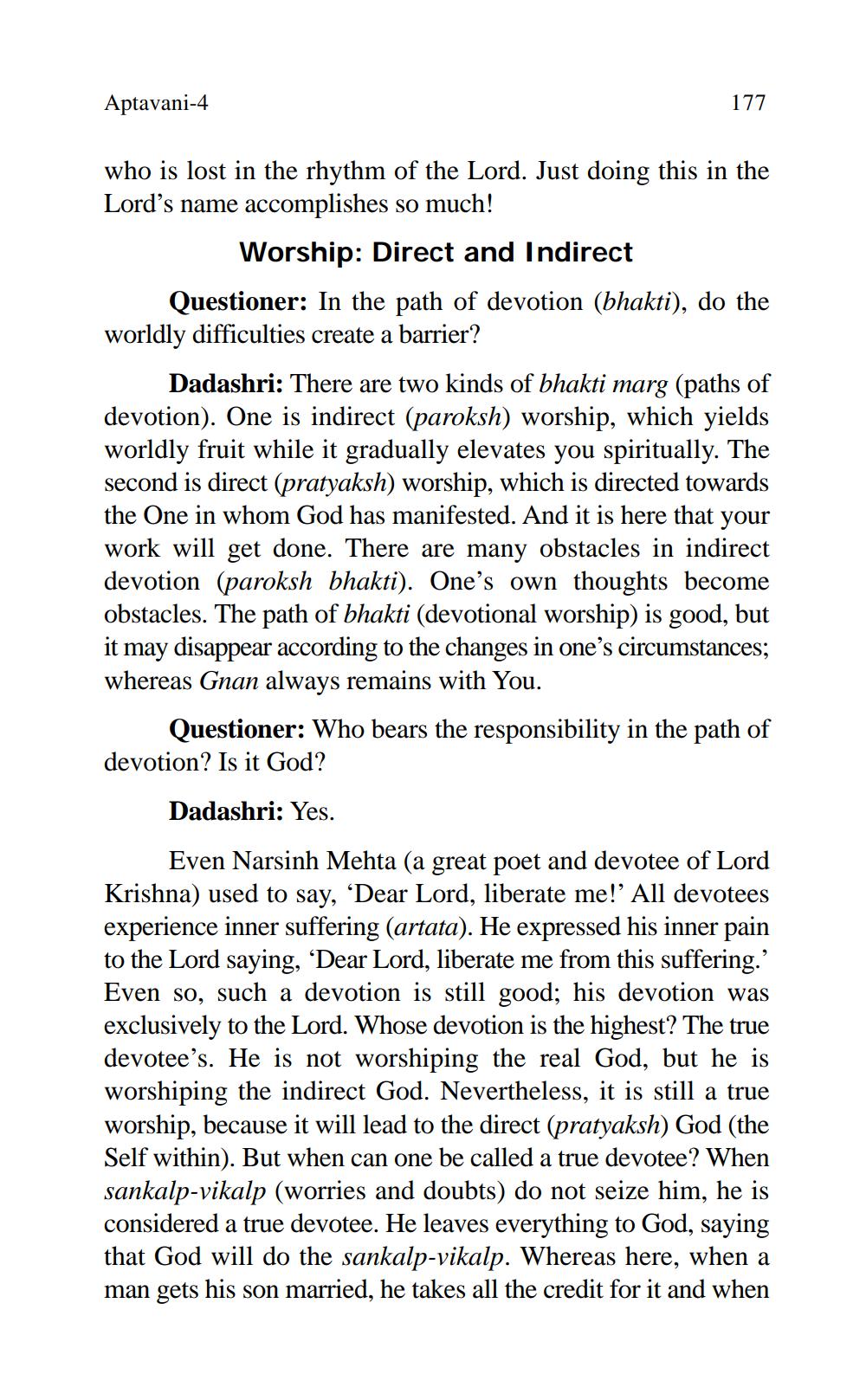________________
Aptavani-4
177
who is lost in the rhythm of the Lord. Just doing this in the Lord's name accomplishes so much!
Worship: Direct and Indirect
Questioner: In the path of devotion (bhakti), do the worldly difficulties create a barrier?
Dadashri: There are two kinds of bhakti marg (paths of devotion). One is indirect (paroksh) worship, which yields worldly fruit while it gradually elevates you spiritually. The second is direct (pratyaksh) worship, which is directed towards the One in whom God has manifested. And it is here that your work will get done. There are many obstacles in indirect devotion (paroksh bhakti). One's own thoughts become obstacles. The path of bhakti (devotional worship) is good, but it may disappear according to the changes in one's circumstances; whereas Gnan always remains with You.
Questioner: Who bears the responsibility in the path of devotion? Is it God?
Dadashri: Yes.
Even Narsinh Mehta (a great poet and devotee of Lord Krishna) used to say, “Dear Lord, liberate me!' All devotees experience inner suffering (artata). He expressed his inner pain to the Lord saying, 'Dear Lord, liberate me from this suffering.' Even so, such a devotion is still good; his devotion was exclusively to the Lord. Whose devotion is the highest? The true devotee's. He is not worshiping the real God, but he is worshiping the indirect God. Nevertheless, it is still a true worship, because it will lead to the direct (pratyaksh) God (the Self within). But when can one be called a true devotee? When sankalp-vikalp (worries and doubts) do not seize him, he is considered a true devotee. He leaves everything to God, saying that God will do the sankalp-vikalp. Whereas here, when a man gets his son married, he takes all the credit for it and when




